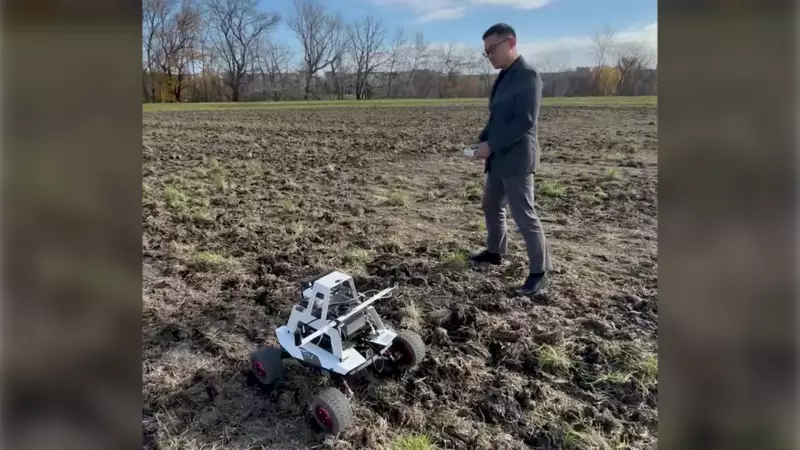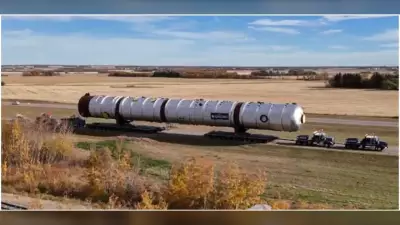
In a groundbreaking development for Canadian agriculture, a University of Manitoba professor has created an innovative robot that harnesses artificial intelligence to assist with farming operations. Assistant professor Jay Wang has been testing the advanced agricultural technology, marking a significant step forward in modern farming practices.
Revolutionizing Traditional Farming Methods
The farm robot represents a fusion of cutting-edge technology and practical agricultural needs. Jay Wang, an assistant professor at the University of Manitoba, has been actively developing and testing this innovative solution that could transform how farmers manage their operations. While specific details about the robot's capabilities remain under development, the integration of artificial intelligence suggests it can perform complex farming tasks with precision and efficiency.
This development comes at a crucial time when the agricultural sector faces increasing challenges, including labor shortages and the need for sustainable practices. The AI-powered robot has the potential to address these issues by automating various farming processes while optimizing resource usage.
Academic Innovation Meets Practical Application
The University of Manitoba has established itself as a leader in agricultural research, and this latest innovation continues that tradition. Professor Wang's work demonstrates how academic research can directly impact real-world industries, particularly in Canada's vital agricultural sector.
The testing phase, documented in November 2025, shows the practical application of theoretical research. The robot's development aligns with growing global trends toward precision agriculture, where technology helps farmers make data-driven decisions to improve crop yields while reducing environmental impact.
Future Implications for Canadian Agriculture
This technological advancement could have far-reaching consequences for farming communities across Canada and beyond. The integration of artificial intelligence in agricultural equipment represents the next evolution in farming technology, building upon previous innovations in automation and data analytics.
As the project continues to develop, farmers and agricultural experts will be watching closely to see how this technology can be implemented in practical farming scenarios. The potential benefits include reduced labor costs, improved crop management, and more sustainable farming practices that could help address food security challenges.
The development of this farm robot at the University of Manitoba underscores Canada's growing role in agricultural innovation and positions the country as a leader in combining traditional farming knowledge with cutting-edge technology.






